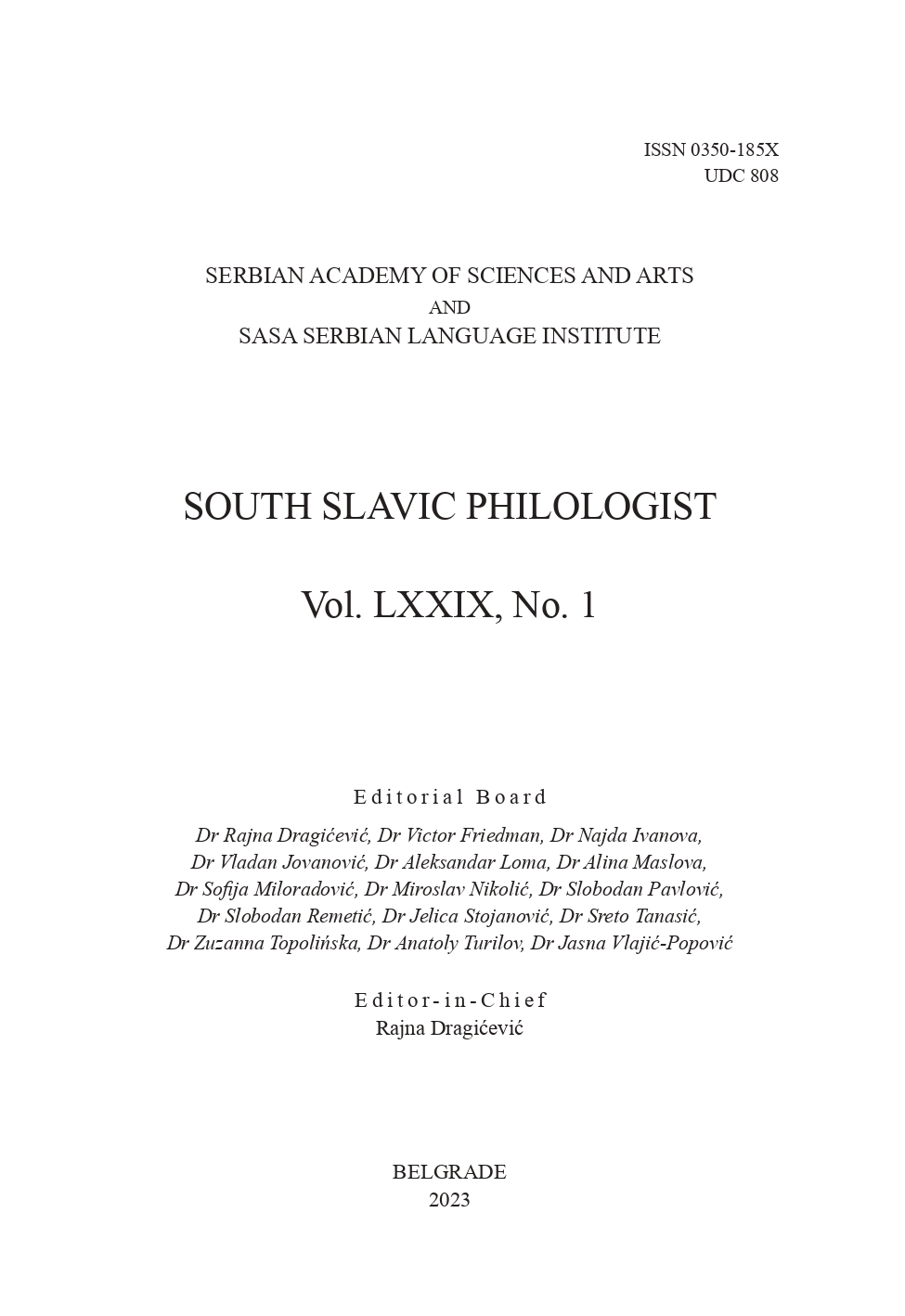ДЕСТРУКТИВНИ ГЛАГОЛИ СА ДЕФЕКТНОМ ПАРАДИГМОМ У РУСКОМ ЈЕЗИКУ
DESTRUCTIVE VERBS WITH DEFECTIVE PARADIGMS IN THE RUSSIAN LANGUAGE
Author(s): Maja R. KrstićSubject(s): Lexis, Semantics, Eastern Slavic Languages
Published by: Институт за српски језик Српске академије наука и уметности
Keywords: destructiveness; verbs; Russian language; paradigm; defectiveness
Summary/Abstract: The subject of this research are verbs with destructive semantics in the Russian language, which are characterized by a paradigmatic defect. Verbs with a destructive meaning form one of the most numerous subgroups within the group of verbs with a paradigmatic defect. The semantic category of destructiveness, which denotes it in the broadest sense, has not yet received a comprehensive description in linguistics. A paradigmatic (systemic) defect is caused by a semantic mismatch between a certain grammeme and the lexical meaning of the lexeme. The given verbs have a two-part paradigm, and the impossibillity of using them in the other persons most often happens due to semantic barriers. They denote an action that is not related to a person as the doer of the action, but most often represents processes, states, and phenomena characteristic of the animal or plant world, etc. А verb of destructiveness denotes an action with the meaning of “decomposition”, “deterioration”. Within the group of verbs with such semantics, we distinguished several subgroups: (1) verbs with the meaning of “spoil”; (2) verbs with the meaning of “disappear”; (3) verbs with the meaning of destruction, disintegration and (4) verbs with the meaning “to cause damage”, “to damage”. As the semantics of destructiveness primarily refers to phenomena or objects, there is almost no need to use other persons within the paradigm of these verbs.
Journal: Јужнословенски филолог
- Issue Year: 79/2023
- Issue No: 1
- Page Range: 159-171
- Page Count: 13
- Language: Serbian

